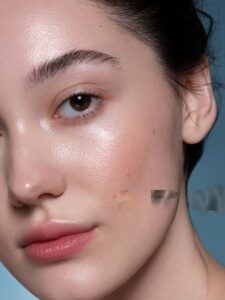shanto
New member
Oily skin is a common skin type characterized by excess sebum production. Sebum, a natural oil produced by the sebaceous glands, helps keep skin hydrated and protected. However, when sebum production goes into overdrive, it can lead to a greasy feeling, enlarged pores, and breakouts.
While
 oilyskin
oilyskin
presents its challenges, it also has some advantages. People with oily skin tend to have thicker complexions, which may develop wrinkles and fine lines later in life. Understanding the causes and proper management techniques can help you achieve a balanced and healthy complexion.
Hormones: Hormonal fluctuations throughout your life, such as puberty, menstruation, pregnancy, and menopause, can significantly affect sebum production.
Climate: Hot and humid weather can increase sebum production, making skin feel oilier.
Diet: A diet high in processed foods, sugary drinks, and unhealthy fats may contribute.Skincare Products: Using harsh or comedogenic (pore-clogging) skincare products can irritate the skin and stimulate excess sebum production.
Signs and Symptoms of Oily Skin:
Shiny or greasy appearance throughout the day
Enlarged pores, particularly on the nose, forehead, and chin
Blackheads and whiteheads
Pimples and acne breakouts
Managing Oily Skin:
Cleanse Wisely:https://dericare.us/ Choose a gentle, oil-free cleanser suitable for oily skin. Wash your face twice daily for a refreshed and balanced complexion.” Avoid harsh scrubs or cleansers that strip your skin’s natural oils, as this can lead to the overproduction of sebum to compensate.
While
 oilyskin
oilyskinpresents its challenges, it also has some advantages. People with oily skin tend to have thicker complexions, which may develop wrinkles and fine lines later in life. Understanding the causes and proper management techniques can help you achieve a balanced and healthy complexion.
Causes of Oily Skin:
You inherit your skin type from your parents, so if they had oily skin, you might too! If your parents have oily skin, you’re more likely to inherit it.Hormones: Hormonal fluctuations throughout your life, such as puberty, menstruation, pregnancy, and menopause, can significantly affect sebum production.
Climate: Hot and humid weather can increase sebum production, making skin feel oilier.
Diet: A diet high in processed foods, sugary drinks, and unhealthy fats may contribute.Skincare Products: Using harsh or comedogenic (pore-clogging) skincare products can irritate the skin and stimulate excess sebum production.
Signs and Symptoms of Oily Skin:
Shiny or greasy appearance throughout the day
Enlarged pores, particularly on the nose, forehead, and chin
Blackheads and whiteheads
Pimples and acne breakouts
Managing Oily Skin:
Cleanse Wisely:https://dericare.us/ Choose a gentle, oil-free cleanser suitable for oily skin. Wash your face twice daily for a refreshed and balanced complexion.” Avoid harsh scrubs or cleansers that strip your skin’s natural oils, as this can lead to the overproduction of sebum to compensate.
